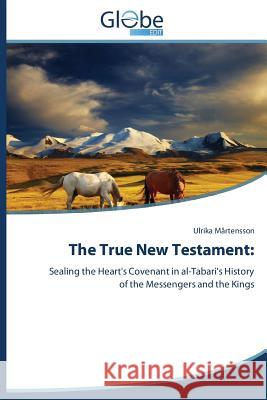The True New Testament » książka
The True New Testament
ISBN-13: 9783639724769 / Angielski / Miękka / 2015 / 212 str.
The book is a study of al-Tabari's (d. 923 CE) famous History of the Messengers and the Kings, which compares it with the Hebrew Bible and its key concepts Covenant and Promised Land. By applying Michel de Certeau's discourse analytical method, it is argued that the Biblical concepts of Covenant and Promised Land refer to a specific system of vassalage and its legal-political structures of land owning and taxation. Al-Tabari's history follows the Biblical outline and concepts, although he places them within a new and expanded context which includes the political and religious histories related to the Persians and the Arabs, including the Prophet Muhammad and the Islamic Caliphate. A reason is also advanced for why al-Tabari used Biblical structures and concepts in writing the history of the Prophet and the Islamic Caliphate. It is argued that he did so in order to analyse the causes that weakened and strengthened imperial states, given the legal-political structures of the specific system of vassalage. Thus, the study advances a new theory of the analytical character of al-Tabari's history.
The book is a study of al-Tabaris (d. 923 CE) famous History of the Messengers and the Kings, which compares it with the Hebrew Bible and its key concepts Covenant and Promised Land. By applying Michel de Certeaus discourse analytical method, it is argued that the Biblical concepts of Covenant and Promised Land refer to a specific system of vassalage and its legal-political structures of land owning and taxation. Al-Tabaris history follows the Biblical outline and concepts, although he places them within a new and expanded context which includes the political and religious histories related to the Persians and the Arabs, including the Prophet Muhammad and the Islamic Caliphate. A reason is also advanced for why al-Tabari used Biblical structures and concepts in writing the history of the Prophet and the Islamic Caliphate. It is argued that he did so in order to analyse the causes that weakened and strengthened imperial states, given the legal-political structures of the specific system of vassalage. Thus, the study advances a new theory of the analytical character of al-Tabaris history.











